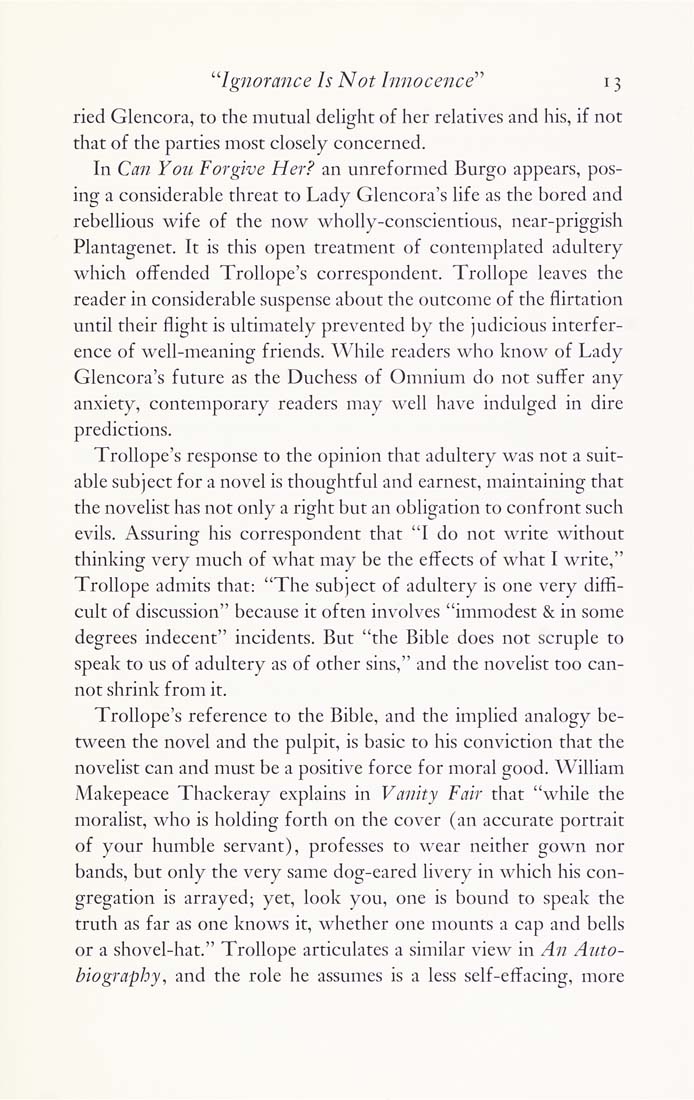Columbia Library columns (v.26(1976Nov-1977May))
(New York : Friends of the Columbia Libraries. )
|
||
|
|
|
|
| v.26,no.3(1977:May): Page 13 |

"Ignorance Is Not Innocence" 13 ried Glencora, to the mutual delight of her relatives and his, if not that of the parties most closely concerned. In Can You Forgive Her? an unreformcd Burgo appears, pos¬ ing a considerable threat to Lady Glencora's life as the bored and rebellious wife of the now wholly-conscientious, near-priggish Plantagenet. It is this open treatment of contemplated adultery which offended TroUope's correspondent. Trollope leaves the reader in considerable suspense about the outcome of the flirtation until their flight is ultimately prevented by the judicious interfer¬ ence of well-meaning friends. While readers who know of Lady Glencora's future as the Duchess of Omnium do not suffer any anxiety, contemporary readers may well have indulged in dire predictions. TroUope's response to the opinion that adultery was not a suit¬ able subject for a novel is thoughtful and earnest, maintaining that the novelist has not only a right but an obligation to confront such evils. Assuring his correspondent that "I do not write without thinking very much of what may be the effects of what I write," Trollope admits that: "The subject of adultery is one very diffi¬ cult of discussion" because it often involves "immodest & in some degrees indecent" incidents. But "the Bible does not scruple to speak to us of adultery as of other sins," and the novelist too can¬ not shrink from it. TroUope's reference to the Bible, and the implied analogy be¬ tween the novel and the pulpit, is basic to his conviction that the novelist can and must be a positive force for moral good. William A-takepeace Thackeray explains in Vanity Fair that "while the moralist, who is holding forth on the cover (an accurate portrait of your humble servant), professes to wear neither gown nor bands, but only the very same dog-eared livery in which his con¬ gregation is arrayed; yet, look you, one is bound to speak the truth as far as one knows it, whether one mounts a cap and bells or a shovel-hat." Trollope articulates a similar view in An Auto¬ biography, and the role he assumes is a less self-effacing, more |
| v.26,no.3(1977:May): Page 13 |







